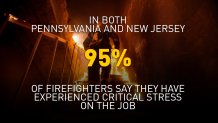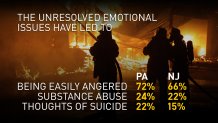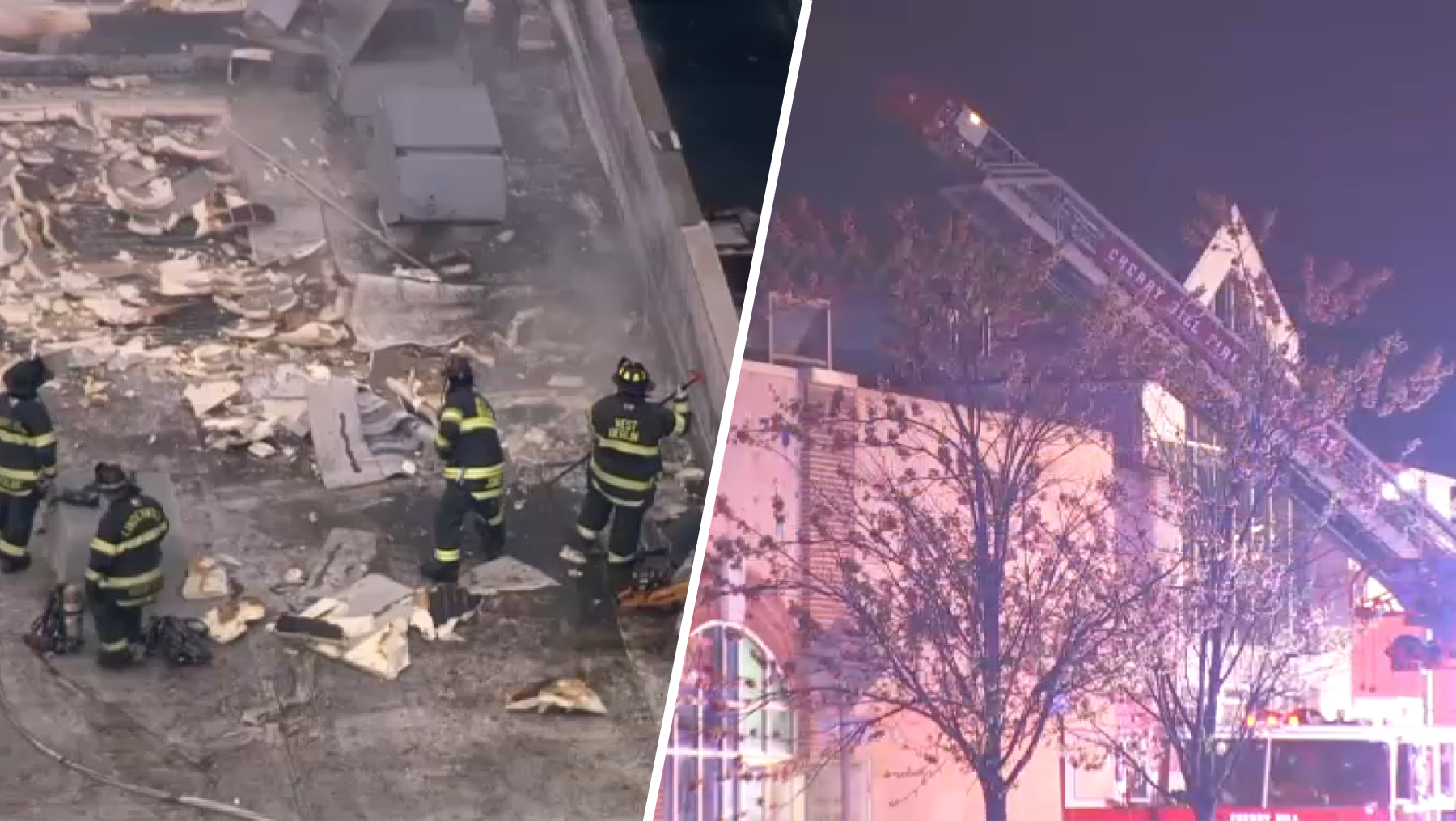What to Know
- 7,000 firefighters from across North America overwhelmingly report in a survey they've had stressful or traumatic experiences on the job
- The International Association of Fire Fighters conducted the survey with NBC Philadelphia and says it highlights a critical need
- But firefighters say getting mental health assistance can be difficult
Retired Philadelphia firefighter Mike Yaeger worked for a rescue company that took part in the battle against one of the city most infamous blazes: the Meridian fire on a cold February night in 1991.
Three firefighters died, and it shook the entire department.
"It had a major impact," Yaeger said. "Three guys died, which always has some trauma associated with it."
And yet, while it may have been one of the worst disasters, the tragedy was one of many that Yaeger and fellow firefighters experience on the job.
"In my career in the fire service, there were 41 line of duty deaths," he told NBC10 in an interview. "I saw 13 of them."
They Save Us, But Who Saves Them? 10 Heartbreaking Stats From New Study on the Mental Health of Firefighters
Local
Breaking news and the stories that matter to your neighborhood.
Dealing with traumatic events comes with the job. But do firefighters get — and in some cases, accept — the help they need to deal with the mental and physical stress?
In partnership with the International Association of Fire Fighters (IAFF), the NBC10 Investigators sent a confidential online survey to thousands of firefighters across the country to hear directly from them about the impact of post-traumatic stress on their lives, and to learn what services are available when they need help.
From across North America, nearly 7,000 firefighters responded. They overwhelmingly responded that stressful or traumatic experiences on the job have impacted their mental health. Among the struggles they say are directly connected to the job: 19 percent have had thoughts of suicide, 27 percent have struggled with substance abuse, 59 percent have experienced family and relationship problems and 65 percent are haunted by memories of bad calls.
Here is a closer look at some of the survey's questions and answers as they were answered by paid firefighters in departments across Pennsylvania and New Jersey.





The IAFF said the survey is unprecedented and highlights a critical need.
"What this study does is really bring home the numbers that we already knew were out there, that fire fighters are suffering from PTSD and other behavioral health disorders," said Jim Brinkley, director of Health and Safety for the IAFF. "And more importantly, there’s a stigma attached to seeking help."
But firefighters say getting mental health assistance can be tricky. Of those who responded to the survey, 81 percent said they feared being seen as weak or unfit for duty if they asked for help. Additionally, 71 percent say they have not used services provided by their department’s employee assistance program (EAP) for mental health issues related to their job. Of those who did use their EAP, 63 percent did not find it helpful.
"We're going to take a hard look at this survey to determine what is it we're doing right and more importantly, where are the gaps. What programming do we need to provide to make sure our members get the help they need?" Brinkley said.
The IAFF provides a vast array of services, the centerpiece of which is its Center of Excellence for Behavioral Health Treatment and Recovery. The residential facility near Washington, D.C. treats union members struggling with substance abuse and related issues like PTSD.
"We don't typically trust outsiders," Brinkley said, explaining that the facility is staffed by firefighters and professionals who’ve received intensive training. "Having someone there who understands what we’ve been through is incredibly powerful."
Another powerful tool are the teams the IAFF dispatches to disasters and tragedies like the school shooting in Parkland, Florida.
"Our intent is to get out and reach the members that have been affected, let them know what some of the signs and symptoms are that they are going to be experiencing and what services are available to them," Brinkley said.
Philadelphia Fire Commissioner Adam Thiel couldn't say how much his big-city department spends on mental health support, adding only that it's "not as much as we would like."
Department chaplin Mark Finn said firefighters and the public should look at the men who run into burning buildings the same way they would think of anyone else: people with feelings who need help dealing with their emotional reaction to traumatic events.
"I guess there's a sense somehow these guys are superheroes, like in the movies. They’re not," Finn said. "Those feelings don’t go away. They have to be dealt with at some point."
Please visit the IAFF Recovery Center for mental health resources for firefighters.



